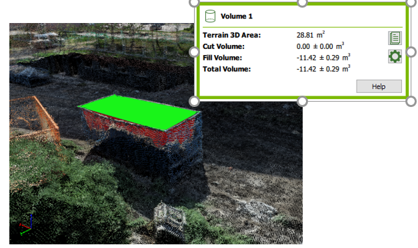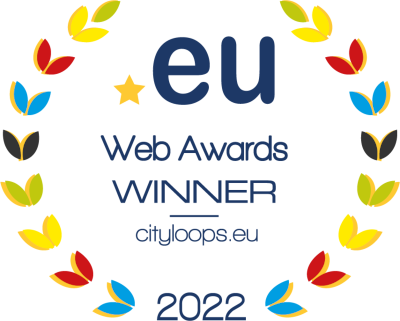Replication and exploitation
CityLoops brings together seven European cities and several partners to pilot a series of demonstration actions aiming to close the loop of two of the most important waste streams in Europe. As such, it is producing numerous and diverse results, first in the form of formal deliverables and concrete achievements, but also more broadly in terms of new policies, experiences, business opportunities or connections. The exploitation of these results in further activities outside of the project is crucial for the transition towards circularity and sustainability. Results should therefore benefit the largest number and be made available to local governments across Europe. On top of disseminating results to a large audience of policymakers in order to maximize their exploitation, in CityLoops we go further by putting a strong emphasis on replication.
CityLoops' definition of replication:
"Replication involves copying the specific features of a sustainable urban development approach that made it successful in a pilot setting and re-applying these in the same or another setting, taking into account that the framework conditions could be quite different from those in the piloted community or region. Replication also encompasses the management process that is used in the pilot scheme or the cooperation structure between critical stakeholders."
Why replication?
At a micro level, we are convinced that during demonstrations, cities collect valuable experience with new, and possibly challenging approaches, experiences which they can pass on. At the same time, cities outside the project are looking for practical examples to replicate, rather than reinvent the wheel each time. Supporting cities in reapplying successful approaches from CityLoops in new settings is at the core of our replication work. We go beyond providing information, we enable cities to take action, be it by providing training, expert support or peer-to-peer exchange

At a macro level, we are convinced that this replication process taken as a whole will foster the transition of Eeuropean cities towards circularity. Moreover, it will contribute to both reducing greenhouse gases emissions and lessening biodiversity loss while at the same time decoupling - to a certain extent - economic growth from resource use. This circular transition will additionally help empower local communities and open new business opportunities for SMEs. As such, the replication process in CityLoops will undoubtedly do its bit to meet the European Green Deal objectives and is fully in line with the UN Sustainable Development Goals.
CityLoops' approach to replication
In CityLoops, replication is a key pillar of our support framework for a long-term embedding of circularity, alongside stakeholder engagement, urban metabolism assessments, circular procurement and evaluation. To put it simply, the replication process relies on providing all the necessary information on demonstrations to replication cities, close communication between replication and demonstration cities, as well as continuous support from consortium experts.
In CityLoops replication happens on 2 levels:
- Embedding and roll-out within the demonstration cities while scaling up within other municipalities in their respective regions.
- Uptake by local and regional actors in other areas of Europe. Complemented with traditional dissemination activities, this dual replication process will ensure an optimal exploitation of results across Europe.
Embedding locally and upscaling regionally
At the city/regional level, the objective is twofold. First, replication aims at embedding circularity within all decision-making in areas related to CDW and BW, but also to roll it out to other material streams and other policy areas. This process will be informed by an Urban Circularity Assessment carried out in each city and a circularity hotspot analysis to define which other sectors are the ripest, and will also strongly rely on Local Stakeholder Partnerships, already mobilised in demonstration actions. The ultimate goal is to become circular cities in which no resource goes to waste, driving the transition to the circular economy.


Second, actions, processes and tools developed in cities will be upscaled at regional level, e.g. in collaboration with the regional government and neighbouring local authorities, by establishing regional Collaborative Learning Networks led by each city. This upscaling will facilitate the necessary critical mass to ensure the opening of new markets, momentum on political regional agendas and capacity building. This will be formalised in upscaling plans, developed in close collaboration between the Local Stakeholder Partnerships and the Collaborative Learning Networks. These plans will encapsulate all actions for further roll out at the city and upscaling at the regional level
Replication at the European level
A series of Replication Zones have been recruited at the European level to replicate actions, tools and procedures developed in demonstration cities. Through a series of webinars, site visits, peer-to-peer exchanges ("twinning") and replication workshops, they will get the opportunity to follow the CityLoops demonstration actions and tools that are most relevant to them and develop implementation strategies and plans for circular economy actions in their city. They will also have access to a number of key documents produced by demonstration cities - constituting “Replication Packages” - to in turn formulate their own Replication Plans.
CityLoops replication zones:
- Espoo
- Ghent
- Prague Services
- Murcia
- Torres Vedras Water, Wastewater and Waste Management
- Valles Occidental
- Vienna


